BMW X3 vs Hyundai Tucson - Differences and prices compared
Compare performance (398 HP vs 288 HP), boot space and price (51300 £ vs 20900 £ ) at a glance. Find out which car is the better choice for you – BMW X3 or Hyundai Tucson?
Costs and Efficiency:
Price and efficiency are often the first things buyers look at. Here it becomes clear which model has the long-term edge – whether at the pump, the plug, or in purchase price.
Hyundai Tucson has a clearly advantage in terms of price – it starts at 20900 £ , while the BMW X3 costs 51300 £ . That’s a price difference of around 30360 £.
Fuel consumption also shows a difference: Hyundai Tucson manages with 2.70 L and is therefore minimal more efficient than the BMW X3 with 2.80 L. The difference is about 0.10 L per 100 km.
As for electric range, the BMW X3 performs clearly perceptible better – achieving up to 88 km, about 18 km more than the Hyundai Tucson.
Engine and Performance:
Power, torque and acceleration say a lot about how a car feels on the road. This is where you see which model delivers more driving dynamics.
When it comes to engine power, the BMW X3 has a distinct edge – offering 398 HP compared to 288 HP. That’s roughly 110 HP more horsepower.
In acceleration from 0 to 100 km/h, the BMW X3 is significantly quicker – completing the sprint in 4.60 s, while the Hyundai Tucson takes 7.50 s. That’s about 2.90 s faster.
In terms of top speed, the BMW X3 performs slightly better – reaching 250 km/h, while the Hyundai Tucson tops out at 204 km/h. The difference is around 46 km/h.
There’s also a difference in torque: BMW X3 pulls convincingly stronger with 670 Nm compared to 379 Nm. That’s about 291 Nm difference.
Space and Everyday Use:
Whether family car or daily driver – which one offers more room, flexibility and comfort?
Both vehicles offer seating for 5 people.
In curb weight, Hyundai Tucson is evident lighter – 1542 kg compared to 1930 kg. The difference is around 388 kg.
In terms of boot space, the Hyundai Tucson offers minimal more room – 620 L compared to 570 L. That’s a difference of about 50 L.
In maximum load capacity, the Hyundai Tucson performs barely noticeable better – up to 1799 L, which is about 99 L more than the BMW X3.
When it comes to payload, BMW X3 slight takes the win – 570 kg compared to 545 kg. That’s a difference of about 25 kg.
Who wins the race in the data check?
The BMW X3 is far ahead overall in the objective data comparison.
This result only shows which model scores more points on paper – not which of the two cars feels right for you.
Costs and Consumption
View detailed analysis
Engine and Performance
View detailed analysis
Dimensions and Body
View detailed analysis
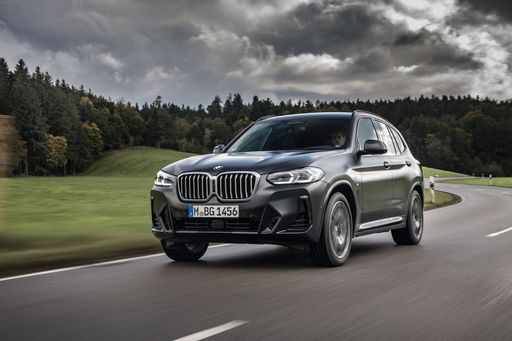
BMW X3
BMW X3
The BMW X3 mixes Bavarian poise with everyday practicality, delivering a composed ride and a cabin that feels both premium and lived-in. It’s the sort of SUV that lets you enjoy sporty handling without sacrificing family-friendly space, so you get fun and sense in one neat package.
details
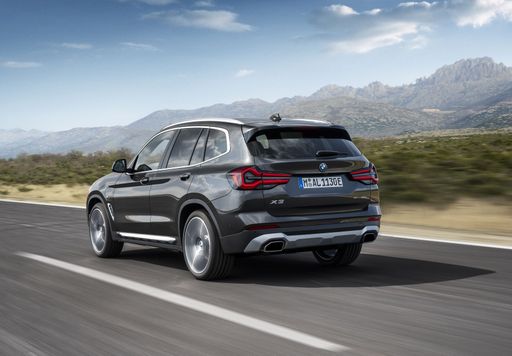
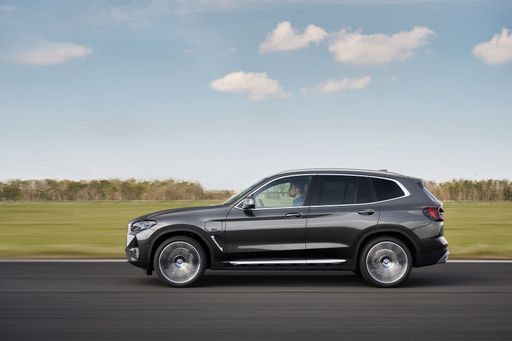
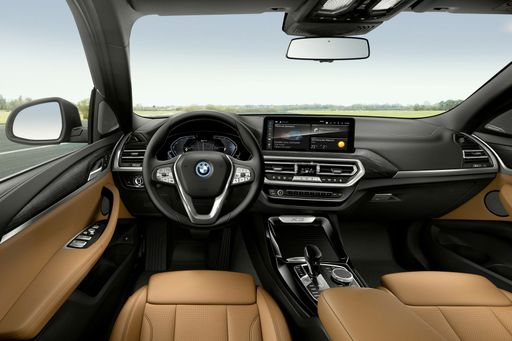
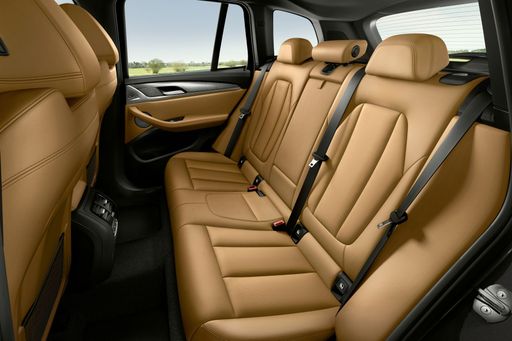
Hyundai Tucson
Hyundai Tucson marries bold, sculpted looks with a clever, roomy cabin that feels smarter than its price tag suggests. It's composed on the road, easy to live with day-to-day, and a sensible choice for buyers who want SUV style without the showroom theatrics.
details




Costs and Consumption |
|
|---|---|
|
Price
51300 - 72400 £
|
Price
20900 - 47900 £
|
|
Consumption L/100km
2.8 - 7.7 L
|
Consumption L/100km
2.7 - 7.6 L
|
|
Consumption kWh/100km
-
|
Consumption kWh/100km
-
|
|
Electric Range
88 km
|
Electric Range
63 - 70 km
|
|
Battery Capacity
-
|
Battery Capacity
-
|
|
co2
64 - 175 g/km
|
co2
62 - 172 g/km
|
|
Fuel tank capacity
60 - 65 L
|
Fuel tank capacity
52 - 54 L
|
Dimensions and Body |
|
|---|---|
|
Body Type
SUV
|
Body Type
SUV
|
|
Seats
5
|
Seats
5
|
|
Doors
5
|
Doors
5
|
|
Curb weight
1930 - 2140 kg
|
Curb weight
1542 - 1893 kg
|
|
Trunk capacity
460 - 570 L
|
Trunk capacity
546 - 620 L
|
|
Length
4755 mm
|
Length
4525 - 4535 mm
|
|
Width
1920 mm
|
Width
1865 mm
|
|
Height
1660 mm
|
Height
1650 mm
|
|
Max trunk capacity
1700 L
|
Max trunk capacity
1795 - 1799 L
|
|
Payload
570 kg
|
Payload
518 - 545 kg
|
Engine and Performance |
|
|---|---|
|
Engine Type
Petrol MHEV, Diesel MHEV, Plugin Hybrid
|
Engine Type
Petrol, Full Hybrid, Plugin Hybrid, Diesel MHEV
|
|
Transmission
Automatic
|
Transmission
Manuel, Automatic
|
|
Transmission Detail
Automatic Gearbox
|
Transmission Detail
Manual Gearbox, Dual-Clutch Automatic, Automatic Gearbox
|
|
Drive Type
All-Wheel Drive
|
Drive Type
Front-Wheel Drive, All-Wheel Drive
|
|
Power HP
197 - 398 HP
|
Power HP
136 - 288 HP
|
|
Acceleration 0-100km/h
4.6 - 7.8 s
|
Acceleration 0-100km/h
7.5 - 11.6 s
|
|
Max Speed
215 - 250 km/h
|
Max Speed
196 - 204 km/h
|
|
Torque
330 - 670 Nm
|
Torque
250 - 379 Nm
|
|
Number of Cylinders
4 - 6
|
Number of Cylinders
4
|
|
Power kW
145 - 293 kW
|
Power kW
100 - 212 kW
|
|
Engine capacity
1995 - 2998 cm3
|
Engine capacity
1598 cm3
|
General |
|
|---|---|
|
Model Year
2024 - 2025
|
Model Year
2025
|
|
CO2 Efficiency Class
F, E, B
|
CO2 Efficiency Class
F, D, E, B
|
|
Brand
BMW
|
Brand
Hyundai
|
What drive types are available for the BMW X3?
The BMW X3 is offered with All-Wheel Drive.




